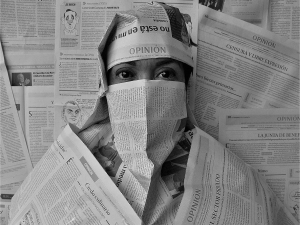“Reporters without borders” assessed the conditions for Mass Media in the period after his death
Local
−
03 May 2024 15056 3 minutes
"Reporters Without Borders" evaluated the media landscape following Karimov's demise.
Uzbekistan ranked 148th among 180 nations in the 2024 press freedom index, as disclosed by the international NGO "Reporters Without Borders."
Notably, Uzbekistan descended 11 spots compared to its 2023 ranking.
“Stagnant media conditions post-President Islom Karimov's 2016 passing have been seeing minimal improvement and persistent challenges in critiquing authority” the report stated.
Uzbekistan is depicted in dark red in the report, indicating a "very serious" situation.
Four journalists have been detained since 2024, as outlined in the report.
Reforms to alleviate repressive media laws remain unimplemented by authorities, with censorship, surveillance, and self-censorship prevailing.
“Certain local online publications refrain from official registration as media entities to safeguard independence, risking prosecution and hefty fines,” stated in the report about Uzbekistan.
The report also discusses the legal proceedings against blogger Otabek Sattori and the pressure on journalists reporting on the 2022 Nukus riots.
The best and the worst of it:
The global decrease in the political index has impacted the top three positions in the World Press Freedom Index.
While Norway maintains its first position, its political standing has declined. Ireland, previously ranked 8th, has lost its top EU spot to Denmark (2nd) and Sweden (3rd) due to politicians attempting to silence the media through legal actions.
Last year's lowest-ranking Asian countries, Vietnam, China, and North Korea, have been replaced by Afghanistan, Syria, and Eritrea, countries experiencing significant declines in their political indicators.
The situation in Eastern Europe and Central Asia:
Media censorship in Eastern Europe and Central Asia is alarmingly resembling Russia's oppressive tactics, particularly evident in Belarus (dropped 10 spots to 167th), Georgia (103rd), Kyrgyzstan (120th), and Azerbaijan (down 13 spots to 164th).
The Kremlin's influence has extended to Serbia (down 7 places to 98th).
In this context, pro-government media in these regions propagate Russian narratives, while authorities intimidate Russian journalists in exile. The unexpected re-election of Vladimir Putin in 2024 has sustained Russia's ongoing conflict in Ukraine, significantly impacting the media landscape and journalist safety.
Regarding this year's freedom of the press rankings, Kazakhstan slid to 142nd place (from 134th last year), Tajikistan to 155th (previously 153rd), Kyrgyzstan to 120th (from 122nd), and Turkmenistan remained at 175th (unchanged from last year).
The situation in the world:
The global scenario this year highlights a lack of political determination from the international community to uphold journalist protection principles, notably UN Security Council Resolution 2222. The ongoing conflict in Gaza has witnessed an unprecedented surge in violations against journalists and media personnel since October 2023.
Over 100 Palestinian journalists have lost their lives at the hands of the Israeli Defense Forces, with at least 22 fatalities occurring while they were on duty.
Under Israeli occupation and enduring incessant bombardment, Palestine has been positioned at 157th out of 180 countries and territories in the 2024 World Press Freedom Index. Notably, it ranks among the lowest 10 nations for journalist safety.
It's noteworthy that today, May 3, marks World Press Freedom Day.
Live
All

